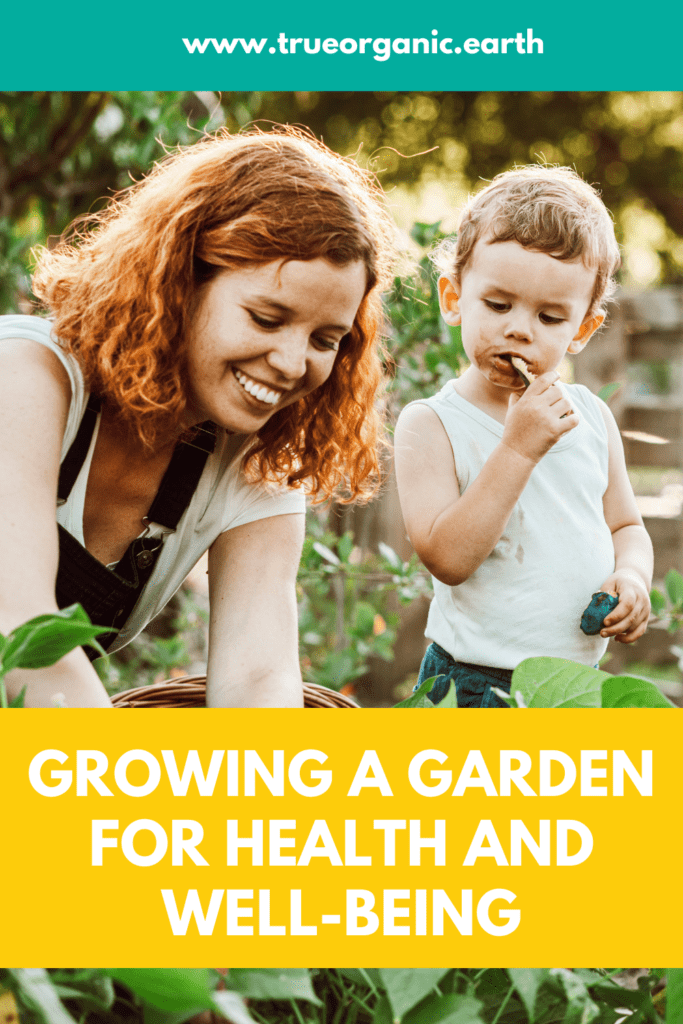May 1, 2023
Mental Health Awareness Month: How Gardening Supports Your Wellness
Mental Health Awareness Month: How Gardening Supports Your Wellness
Why does gardening feel so good?
There are so many ways gardening supports our health: from elevating our mood to supporting immunity — not to mention the many benefits of eating fresh, organic food right from the earth.
May is Mental Health Awareness Month and we’re excited to share the impact that gardening has on our mental and emotional health. Let’s look at the different ways gardening is scientifically proven to support health and wellness.
Overall wellness
As doctors and research scientists learn more about how our physical and mental health are linked, we can really start to connect the dots between how gardening (and being outside, in general) supports the healthy function of our bodies and minds — and how those two realms of wellness are connected.
There is growing, clear scientific research explaining how and why a connection with nature is so influential on our health.
For starters, spending time in nature can:
- Lower your blood pressure
- Soothe your nervous system
- Strengthen immune function
- Increase your self-esteem
- Help you build emotional resilience
Since all of these aspects of our health are related, let’s look at the most direct impacts on mental and physical wellness.
 Less anxiety, better mood
Less anxiety, better mood
There are, thankfully, swaths of studies finally proving that spending time in nature can help you feel more calm and help lift your mood, and even ease symptoms of chronic mental health challenges like depression.
Specific research on people experiencing depression shows that, over time, using “therapeutic horticulture” can noticeably reduce the severity of depression after just 12 weeks (and results keep increasing after three months).
Decrease in stress hormones and stress responses
More research suggests that spending time outdoors even reduces cortisol levels, heart rate, blood pressure, and muscle tension — which are all physiologically related to stress, chronic illness, and our general wellbeing, both mental and physical.
Don’t you feel calmer already just thinking about being in the garden? 😌
Beneficial bacteria
Here’s some really cool new research on the positive impact of organic gardening and soil health in particular.
Along with helping to manage the psychological chemicals in our body that are related to our nervous system’s stress response (like cortisol), gardening can actually increase the chemicals that make us feel good! Here’s how:
Since at least 2017, studies have shown that Mycobacterium vaccae, a common soil bacterium (especially present in soil that’s farmed organically), is linked to reduced symptoms of depression and increased serotonin production in our brain — the neurotransmitter that gives us feelings of happiness and modulates anxiety. Along with the emotional benefits, Mycobacterium vaccae has been shown to ease asthma and psoriasis.
Thanks, soil bacteria!
 Physical wellness
Physical wellness
Just being in natural light (and getting needed Vitamin D for our bodies) and breathing fresh air can improve our immune system. And a healthy body supports our mental health, too.
Gardening also provides time to get light to moderate exercise: pushing wheelbarrows, shoveling, digging, and lifting. Getting moderate exercise and healthy movement not only helps us feel confident, but it also reduces anxiety and depression.
Improving concentration and memory
Gardening is related to better brain function and to improved concentration and memory.
Research like this 15-year study study in Australia of older adults have found that daily gardening is also a huge factor in reducing the risks and development of dementia and Alzheimer’s.
While the causes and characteristics of Alzheimer’s are still being studied, it’s thought that gardening stoked our brain functions like learning, dexterity, and problem solving.
Wellness for kids
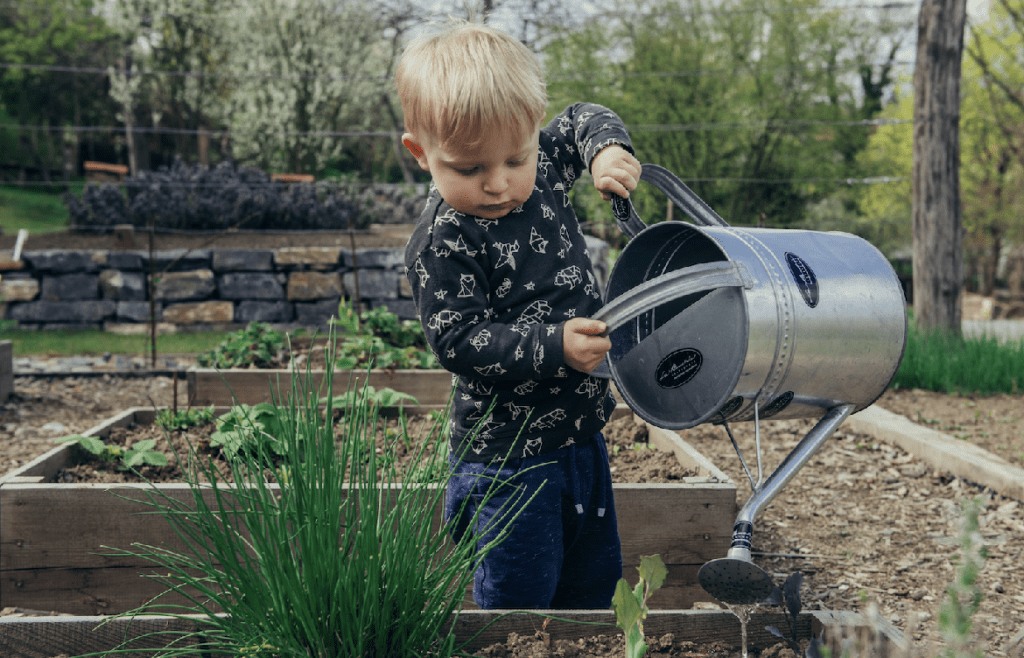
[Check out our blog featuring Christina Abuelo, the volunteer founder and full-time manager of Barrio Botany, a garden-based education initiative that builds classroom gardens and works with kids in urban schools in San Diego.]
For at-risk kids (those living in poverty, in foster care, or other challenging life experiences) getting into the garden can be life-changing. Numerous studies show resilience building-opportunities like classroom gardening can actually reverse future negative impact on adult health and increase rates of early mortality.
Social connection and a sense of belonging
Gardening and being in nature can also reduce feelings of isolation, which we can all agree is a majorly important aspect of emotional wellness.
University of Florida researchers who have studied the impact of gardening on mood and anxiety believe that one of the reasons working in the garden feels so good is related to how plants and humans have evolved together, and humans’ role of cultivating plants and caring for nature.

While gardening can be a calming, solitary activity (and provide cherished alone time for people who need a quiet moment in nature), we can also get much-needed social connection through gardening. Community gardening, events, classes, seed swaps, and family gardening time all offer social and community connections that help us feel a sense of belonging and joy.
So get out there and garden!
There’s plenty more to read when it comes to how gardening, being outside, growing your own food, and tending to nature improves our wellbeing and health…but we think it’s about time to dig into some soil.
While you’re out there, take a moment to reflect on all the good you’re doing for the planet, your family, and your body — because doing mindful, intentional reflection (even for a minute or two) is proven to reduce stress and make you healthier, too.
Wishing you a happy Mental Health Awareness Month. 💚
Show us your True Organic Plants
#GrowWithTrue
www.trueorganic.earth

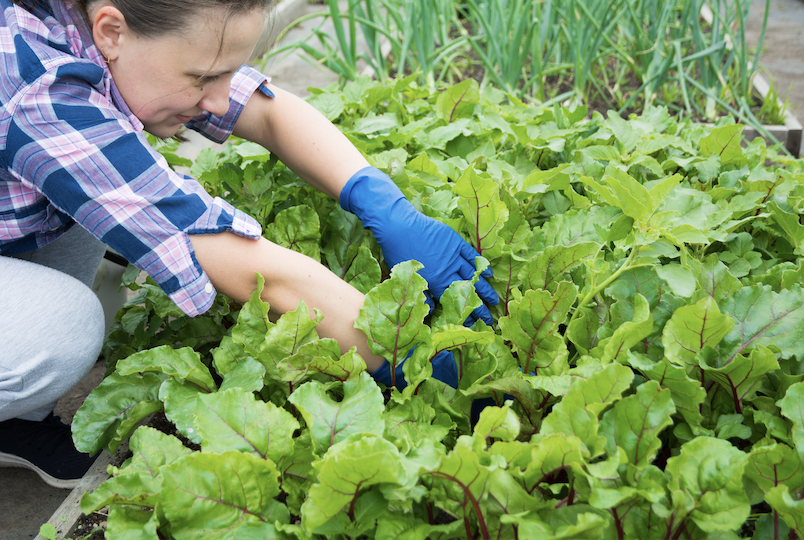
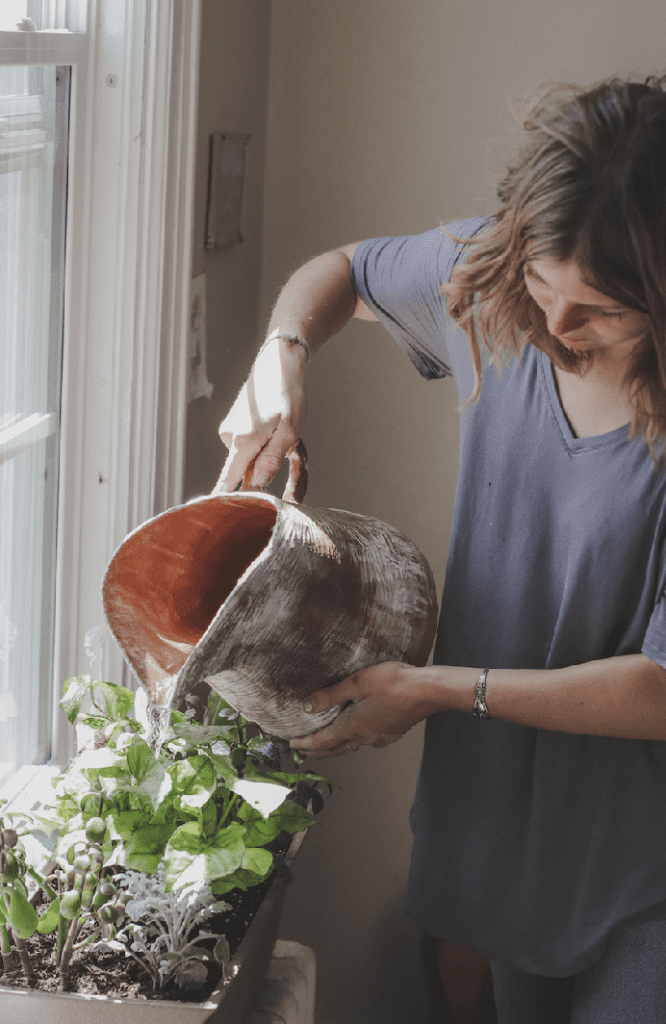 Less anxiety, better mood
Less anxiety, better mood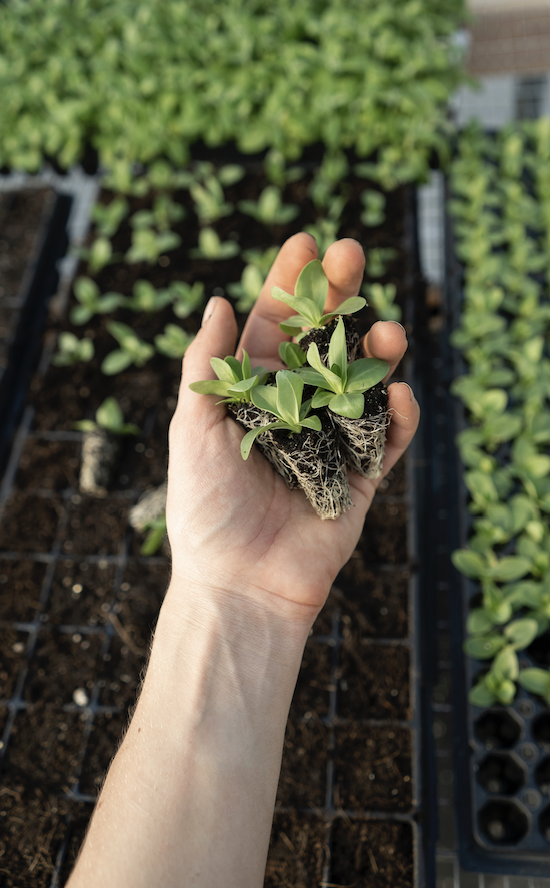 Physical wellness
Physical wellness